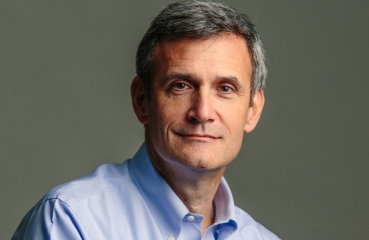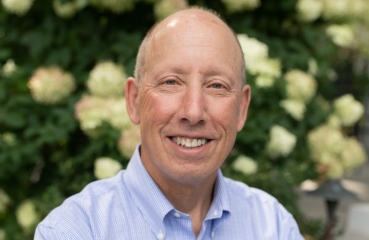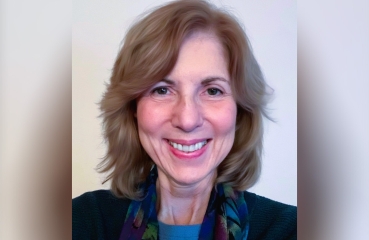What we're reading this week: May 4, 2023
The Education GadflyAmerican Federation of Teachers president Randi Weingarten has politicized her union and inserted herself into America’s culture wars.
#868: Virginia’s new history and social science standards, with Andy Rotherham
On this week’s Education Gadfly Show podcast, Bellwether co-founder and Virginia Board of Education member
“A Nation at Risk” still has a message for today, forty years later
Bruno V. MannoThis April marks forty years since the National Commission on Excellence in Education issued its blockbuster report “A Nation at Risk: The Imperative for Educational Reform.” The commission, which worked for eighteen months, was created in August 1981 by U.S. Secretary of Education Terrel Bell early in his tenure with President Ronald Reagan’s administration.
In defense of education culture wars
Daniel BuckThe culture war matters, it’s popular, and it’s inevitable, argues Buck. In fact, it matters a lot—as much if not more than the technocratic squabbles over testing metrics, data analysis, teacher accountability, charter policies, or pay scales. These policies adjust the dials and doohickies on the ship of state. The culture war is the rudder that determines its direction.
Stiff headwinds for civic education
Robert PondiscioNote: On April 13, AEI’s Robert Pondiscio spoke at Harvard’s Program on Education Policy and Governance’s Colloquium Series, responding to Dr. Danielle S.
Should selective high school admissions be decided by a one-shot test?
Adam Tyner, Ph.D.How to select students for advanced or elite academic programs has long been controversial. Critics of “holistic” admissions policies argue they often turn to mush—or inject bias into the process. At the other extreme, a few programs use nothing more than a single assessment to determine placement.
The problematic variation in socioeconomic status measures
William RostCountless studies on education incorporate measures of socioeconomic status (SES). But this metric is, perhaps surprisingly, rather ill-defined and has incorporated many varying components since its inception in the early twentieth century.
What we're reading this week: April 27, 2023
The Education Gadfly“Altering how teachers are evaluated and paid remains a powerful lever for improving student outcomes.” —Martin R.
#867: How Core Knowledge schools boost students’ reading comprehension, with Robert Pondiscio
On this week’s Education Gadfly Show podcast, American Enterprise Institute senior fellow
“A Nation at Risk” warned of “a rising tide of mediocrity.” Forty years later, little has changed.
Morgan PolikoffThe National Commission on Excellence in Education’s release of a report titled “A Nation at Risk” in 1983 was a pivotal point in the history of American education.
I’m pro–public education. That’s why I want universal education savings accounts to succeed.
Michael J. PetrilliThere are many reasons to be skeptical of the universal ESA programs that are sweeping the nation, but they are worth rooting for anyway because they’ll likely lead traditional public schools to improve.
Character formation is central to a liberal education: The example of Wake Forest University
Jennifer FreyThe movement to reconnect knowledge and virtue is not limited to classical schools that focus on primary and secondary education (K–12). Some institutions of higher education are also taking character education seriously, such as Wake Forest University in Winston-Salem, North Carolina. In 2016, Wake Forest recruited Dr.
Let’s forge a new K–12 political coalition—without political extremists
Bruno V. MannoEditor’s note: This was first published in The 74. The education culture wars on issues like critical race theory and how to teach history create a false narrative and collective illusion on K–12 issues among Americans
An early analysis of a one-to-one tutoring model
Jeff MurrayProviding students with tutoring in addition to in-class learning time is an oft-prescribed remedy for both catching up students who are behind and accelerating students who are capable of even higher performance. Two common sticking points to providing that remedy are finding additional time in the day, week, or year for the intervention and finding enough qualified personnel.
The sad state of social studies instruction
Nathaniel GrossmanThe National Assessment of Educational Progress (NAEP) paints a bleak picture of student achievement in social studies. According to the most recent report from 2018, just 24 percent of eighth graders were proficient or advanced in civics.
What we're reading this week: April 20, 2023
The Education GadflyThe creator of popular language app Duolingo is developing artificial intelligence-powered programs he believes will be better teachers than humans.
California must better support its advanced learners
Victoria McDougaldWhen my son entered kindergarten at our local public school last fall, I never expected I’d have to become an ambassador and advocate for giftedness and gifted education. He has always been an eager, rapid learner—intensely curious and a social butterfly—so we expected his first year of elementary school to be one of mostly excitement, fun and joy.
#866: The challenges of implementing through-course assessments, with Scott Marion
On this week’s Education Gadfly Show podcast, Sc
Georgia’s laudable addition of Great Works to its English standards
Mark BauerleinThe Georgia Department of Education has released a new version of proposed English language arts standards for public comment, and they contain a big surprise. If you dig into the “Texts” section and go to grade eleven, you’ll find this requirement:
Democracy dies without trust and truth: Strengthen civics education
Walter ParkerThe two pillars of democracy—trust and truth—are now cracked. Many Americans believe the political system is corrupt (e.g., rigged, racist), and some don’t believe the results of elections, even certifiably fair ones. Related, we have lost a shared standard of truth and, with it, shared criteria for distinguishing fact from falsehood.
At long last, E.D. Hirsch, Jr. gets his due: New research shows big benefits from Core Knowledge
Robert PondiscioA new study demonstrates unusually robust and beneficial effects on reading achievement among students in schools that teach E.D. Hirsch’s Core Knowledge curriculum. The working paper offers compelling evidence to support what many of us have long believed: Hirsch has been right all along about what it takes to build reading comprehension.
Lessons for ed reform from the Tennessee Three
Dale ChuWhen Tennessee House Republicans expelled, albeit briefly, two young, Black Democratic lawmakers late last week, it raised a number of unsettling questions—not only about the contours of our politics, but also about the future of educat
The extended case for faith-based charter schools
Andy SmarickA little-noticed event in late 2022 destabilized a pillar of contemporary American K–12 education, namely that all schools considered part of the public system must be secular.
Algebra for none: The effects of San Francisco’s de-tracking reform
Jeanette LunaThe ongoing debate over when students shoul
What we're reading this week: April 13, 2023
The Education GadflyA new study finds that Detroit’s neighborhood schools have a higher proportion of students in deep poverty than the city’s charter and application schools.
#865: The challenges of parenting gifted children, with Gail Post
On this week’s Education Gadfly Show podcast, Gail Post joins Mike Petrilli and Dav





























